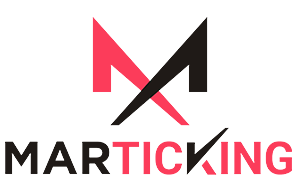The Generative AI Tools Guide: Your Strategy For Successful SEO
In the ever-evolving landscape of digital marketing, the integration of artificial intelligence (AI) has become a pivotal strategy for businesses seeking to enhance their online presence. Specifically, AI-powered tools have revolutionized various facets of marketing, from content creation to search engine optimization (SEO). In this comprehensive guide, we delve into the realm of AI tools, focusing on their applications in writing, marketing, and SEO strategies. By understanding the capabilities and functionalities of these tools, marketers can harness their potential to drive impactful results and achieve SEO success.
1. AI Writing Tools:
AI writing tools represent a paradigm shift in content creation, offering innovative solutions for generating high-quality and engaging content efficiently. These tools leverage natural language processing (NLP) algorithms to analyze vast datasets, understand context, and produce human-like text. From blog posts to product descriptions, AI writing tools empower marketers to streamline their content creation process while maintaining relevance and coherence.
Key Features:
– Natural Language Generation (NLG): AI writing tools utilize NLG algorithms to generate coherent and grammatically correct content.
– Content Personalization: By analyzing user data and preferences, AI tools can tailor content to specific audiences, enhancing engagement and conversion rates.
– Multilingual Support: Many AI writing tools support multiple languages, enabling marketers to reach global audiences effectively.
– Content Optimization: AI tools offer insights and suggestions for optimizing content for SEO, including keyword integration and readability enhancements.
Examples of AI Writing Tools:
- Open AI’s GPT (Generative Pre-trained Transformer): GPT models are among the most advanced AI writing tools, capable of generating diverse and contextually relevant content across various domains.
- Content Bot: This AI-powered platform specializes in creating SEO-friendly content, providing marketers with valuable insights to improve search visibility.
- Word tune: Word tune employs AI algorithms to rewrite and refine existing content, helping marketers enhance clarity and coherence while optimizing for SEO.
2. AI Marketing Tools:
In the realm of marketing, AI-driven tools offer unprecedented capabilities for data analysis, audience targeting, and campaign optimization. By harnessing the power of machine learning algorithms, these tools enable marketers to make data-driven decisions and optimize their strategies for maximum impact.
Key Features:
– Predictive Analytics: AI marketing tools analyze historical data to predict future trends and consumer behavior, enabling marketers to anticipate market demands and adjust their strategies accordingly.
– Personalized Recommendations: By leveraging user data and behavioral patterns, AI tools deliver personalized recommendations and content, enhancing customer engagement and satisfaction.
– Campaign Optimization: AI algorithms continuously optimize marketing campaigns by adjusting targeting parameters, ad creatives, and messaging to maximize ROI.
– Marketing Automation: AI tools streamline repetitive tasks such as email marketing, social media management, and lead nurturing, freeing up time for marketers to focus on strategy and creativity.
Examples of AI Marketing Tools:
- HubSpot Marketing Hub: HubSpot’s AI-powered marketing platform offers a suite of tools for lead generation, content management, and analytics, helping marketers streamline their efforts and drive results.
- Adobe Sensei: Adobe Sensei employs AI and machine learning to enhance various aspects of marketing, including customer segmentation, predictive analytics, and content optimization.
- Salesforce Einstein: Salesforce Einstein integrates AI into its CRM platform, enabling marketers to deliver personalized experiences at scale, drive customer engagement, and accelerate sales cycles.
3. AI SEO Tools:
SEO remains a cornerstone of digital marketing, and AI has emerged as a game-changer in optimizing websites for search engines. AI-powered SEO tools leverage advanced algorithms to analyze website performance, identify opportunities for improvement, and enhance visibility in search engine results pages (SERPs).
Key Features:
– Keyword Research: AI SEO tools conduct comprehensive keyword research, identifying relevant search terms and phrases with high traffic potential and low competition.
– On-Page Optimization: These tools offer recommendations for optimizing on-page elements such as meta tags, headings, and content structure to improve search rankings.
– Content Analysis: AI algorithms analyze content quality, relevance, and readability, providing insights and suggestions for enhancing SEO performance.
– Backlink Analysis: AI SEO tools evaluate backlink profiles to identify authoritative sources and opportunities for link building, a critical factor in improving search visibility.
Examples of AI SEO Tools:
- SEMrush: SEMrush offers a suite of AI-powered SEO tools, including keyword research, site audit, and competitor analysis, to help marketers optimize their websites for search engines effectively.
- Ahrefs: Ahrefs AI-driven platform provides insights into backlink profiles, keyword rankings, and content performance, empowering marketers to refine their SEO strategies and outrank competitors.
- Google Search Console: While not strictly an AI tool, Google Search Console utilizes machine learning algorithms to analyze website data and provide actionable insights for improving search performance on Google.
Generative AI tools for Marketing Strategy
When it comes to marketing strategy, AI tools serve as indispensable assets, empowering marketers to navigate the complexities of the digital landscape with precision and efficiency. These tools leverage advanced algorithms and data analytics to optimize various aspects of marketing, from audience targeting to campaign optimization. Let’s explore some key AI tools that are instrumental in shaping effective marketing strategies:
Examples:
IBM Watson Analytics: Watson Analytics offers predictive analytics capabilities, allowing marketers to uncover insights, predict outcomes, and make data-driven decisions to enhance their marketing strategies.
SAS Predictive Analytics: SAS provides a suite of predictive analytics tools that enable marketers to forecast trends, segment customers, and personalize marketing campaigns based on predictive insights.
Conclusion:
In conclusion, integrating AI tools into Marticking’s marketing strategy is paramount for staying ahead in today’s dynamic digital landscape. These tools, ranging from predictive analytics to content optimization and marketing automation, offer unparalleled capabilities to enhance efficiency, personalize customer experiences, and drive measurable results. By leveraging AI-powered insights and automation, Marticking can optimize its marketing efforts, engage its audience more effectively, and achieve sustainable growth in the competitive marketplace. Embracing AI is not just a choice but a strategic imperative for Marticking to thrive in the digital age.


